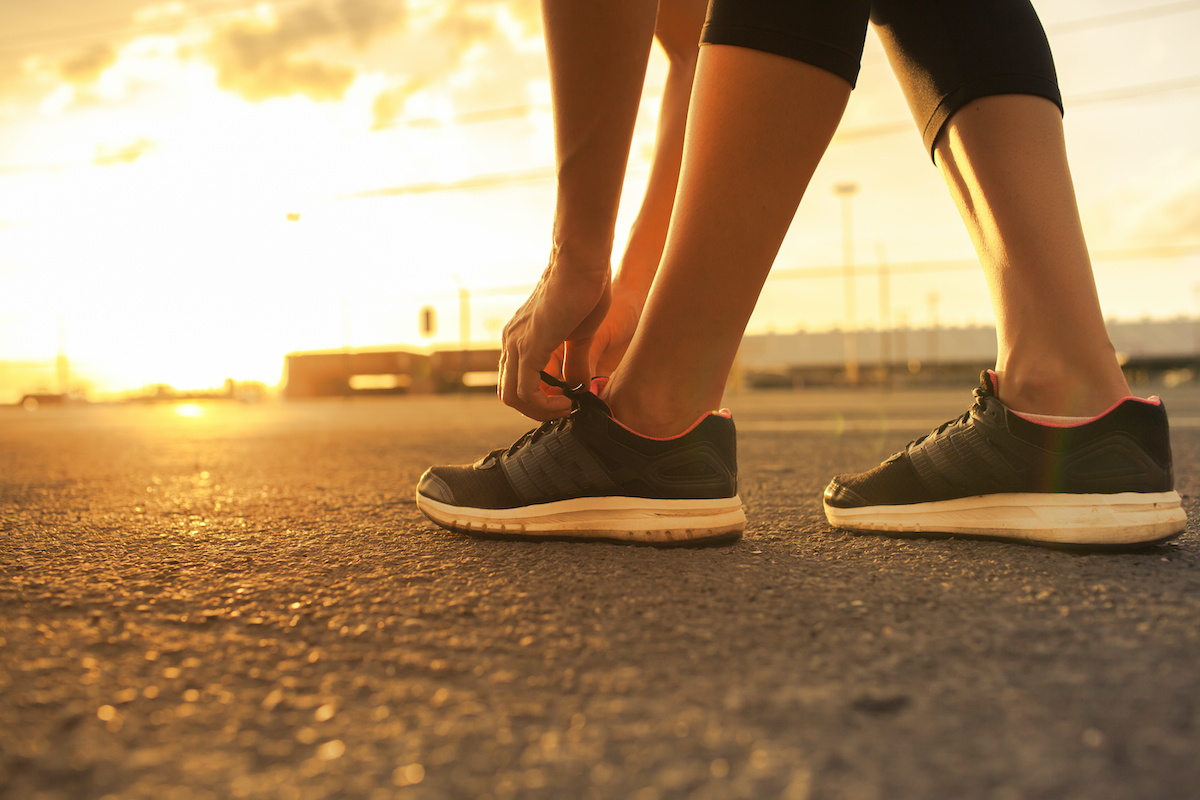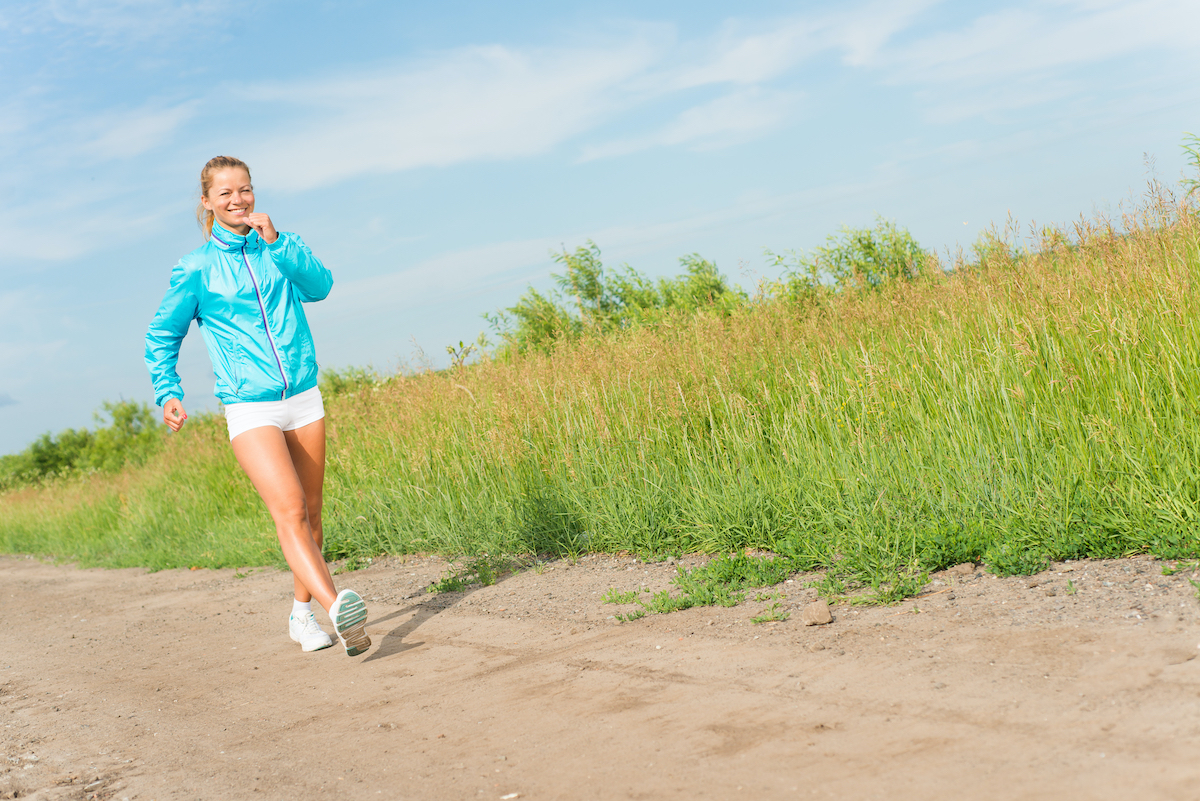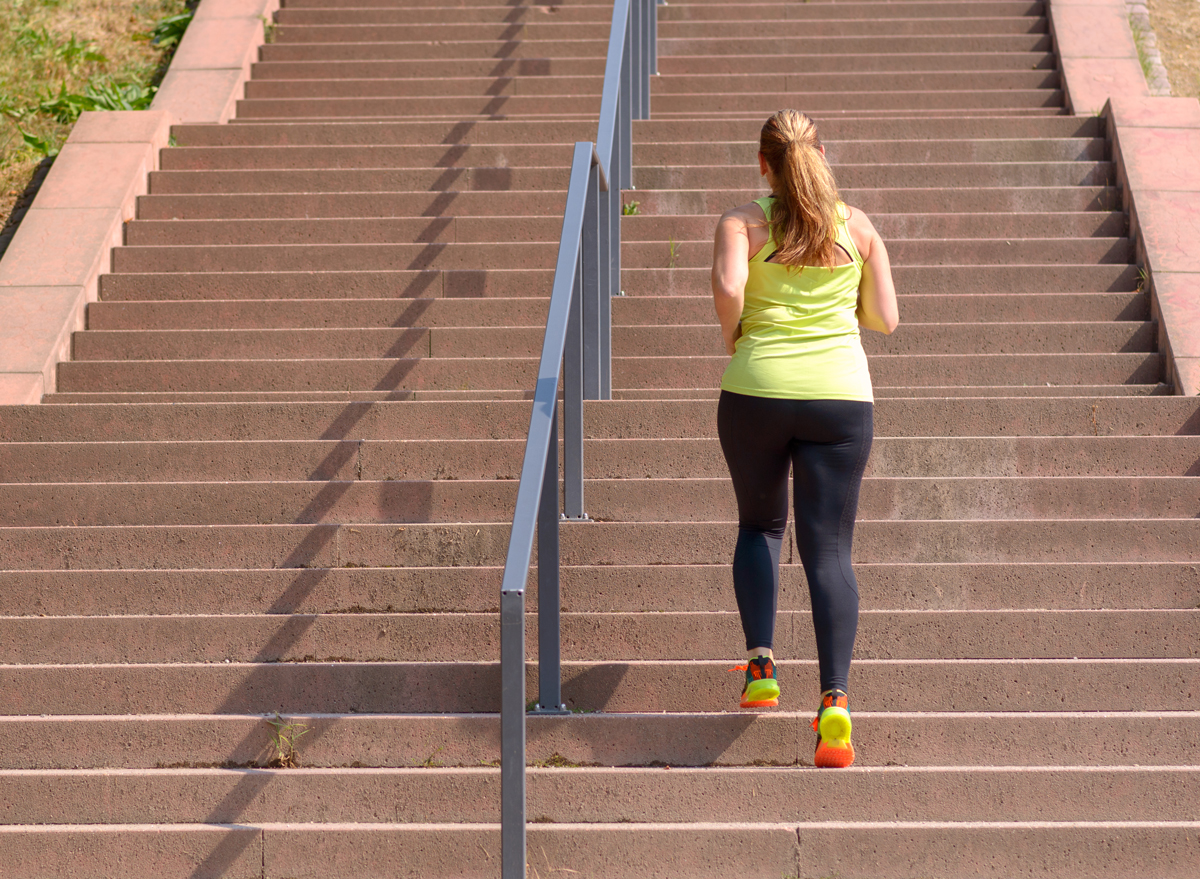Here’s How Walking More Secretly Extends Your Life, Says Science

It’s no secret that regular exercise is crucial to living a longer and healthier existence. Science has shown that, in addition to doing more of whatever exercises you love doing—whether it’s surfing, running, or playing more pickleball—there are a few things you can do that are especially good at adding years to your life. Performing lots of squats, doing more exercises for balance and coordination, joining a workout group, and elevating your intensity regularly are all things that are specifically linked to a longer life. But one of the best ways you can add pages to the calendar? Simply walk more at a brisk pace.
According to a study published in British Journal of Sports Medicine, regular walking at a brisk pace was associated with a 20 percent reduced risk of “all-cause death.” According to a study of 450,000 people published in Mayo Clinic Proceedings, faster walkers have better odds of living longer than slower workers—regardless of their body-mass index (BMI). On average, slow female walkers lived to about 72 years-old, while faster female walkers lived to the age of 87. Men who walked briskly lived to roughly 86 years-old, while slow male walkers had a lifespan of 65 years. According to one top scientist, walking more at a brisk pace can add upwards of two decades to your life.
So how is it that walking more at a brisk pace is so effective at prolonging your life? If you’re curious to know the answers, read on, because here are four incredible ways that walking protects your body and helps you live longer. And if you’re a diehard walker, make sure you’re aware of The Secret Cult Walking Shoe That Walkers Everywhere Are Obsessed With.
Walking Helps Erase the Harmful Effects of Sitting

According to the calculations of The Mayo Clinic’s James Levine, MD, author of Get Up! Why Your Chair Is Killing You and What You Can Do About It, you’re losing roughly two hours of life for every hour you’re sitting down. “Sitting is more dangerous than smoking, kills more people than HIV, and is more treacherous than parachuting,” he once explained to The Los Angeles Times. “We are sitting ourselves to death.”
One the best ways to counteract the health risks of a sedentary lifestyle is to simply walk more. A new study published in the British Journal of Sports Medicine offers a very specific formula for how you can do it. According to the study, if you want to essentially erase the harmful effects of sitting—and lower your odds of dying early by 30%—you need to do exactly 3 minutes of “moderate to vigorous” exercise for every hour of the day you spend sitting. If you can’t do more moderate to vigorous exercises, “12 minutes of light physical activity” for every hour sitting will work.
In other words, if you normally sit for 8 hours a day while working at your desk, you can live longer by walking at a brisk pace for 24 minutes a day. And for more on the benefits of walking, check out Exactly How Fast You Need to Walk to Live Longer, Says Science.
Walking Helps Predict Your Death Risk

For a recently published study in the journal Risk Factors and Prevention, researchers at the European Society of Cardiology assembled more than 160 patients who were either known to have—or were suspected to have—coronary artery disease (CAD). According to the CDC, CAD is the most common form of heart disease, caused by a buildup of plaque in your artery walls, and the symptoms include chest pain, weakness and nausea, “pain or discomfort in the arms or shoulder,” and “shortness of breath.”
In short, study participants who are able to successfully climb four flights of stairs in 45 seconds were able to living longer that those who took as long as a minute and a half. “The stairs test is an easy way to check your heart health,” Jesús Peteiro, MD, a cardiologist at University Hospital A Coruña, Spain, said in the official release. “If it takes you more than one-and-a-half minutes to ascend four flights of stairs, your health is suboptimal, and it would be a good idea to consult a doctor.” And for more on the benefits of walking, check out Exactly How Fast You Need to Walk to Live Longer, Says Science.
Walking Helps You Get Lean

Not only will walking more boost your energy levels, help you sleep, reduce your risk of disease, and ultimately help you live a longer life, but it will also help you slim down and get the lean body you’ve always wanted. “Walking can shed just as many pounds as running; it just may take a little longer,” as Alasdair Fitz-Desorgher, personal trainer at Openfit, a fitness app, explained to The Telegraph. The key to getting lean is to always make your walks brisk.
For proof, know that in one study, published in the Journal of Exercise Nutrition & Biochemistry, researchers probed the effects of walking on obese women and found that it was particularly effective at reducing belly fat, among other health benefits. In another study, published in the journal JAMA Internal Medicine, researchers found that men and women between the ages of 40 and 65 who lived sedentary lifestyles managed to lose weight when they walked for 12 miles every week. In the case of the latter study, the study participants didn’t meaningfully alter their diets.
Now, it should likely go without saying, but carrying around extra weight can increase your risk of early death. Among other reasons, being overweight is associated with a higher blood cholesterol level and high blood sugar—two of the major risk factors for heart attack and stroke.
If you’d really like to ramp up your fat loss, you should always walk with a specific distance as a goal. According to a ten-week study published in International Journal of Exercise Science, walkers and runners who went out with a distance-oriented goal ended up losing an average of nearly 9 pounds by the end of the study. Those who walked or ran to a time-based goal, such as “walking for one hour,” actually gained an average of 2.4 pounds.
Walking Strengthens Your Heart

Science has routinely shown that walking more can help reduce your heart attack and stroke risk. According to a 2019 study conducted by the European Society of Cardiology, sedentary behavior over two decades will skyrocket your risk of an early death. However, adding in a daily walk—or simply standing more—could can do wonders to rectify matters. According to a 2012 study published in BMJ Open, a team of researchers found that reducing sitting to under three hours a day could increase a person’s life expectancy by as much as two years. And for more tips on becoming a better walker starting now, see here for The Secret Tricks for Walking for Exercise, According to Walking Specialists.